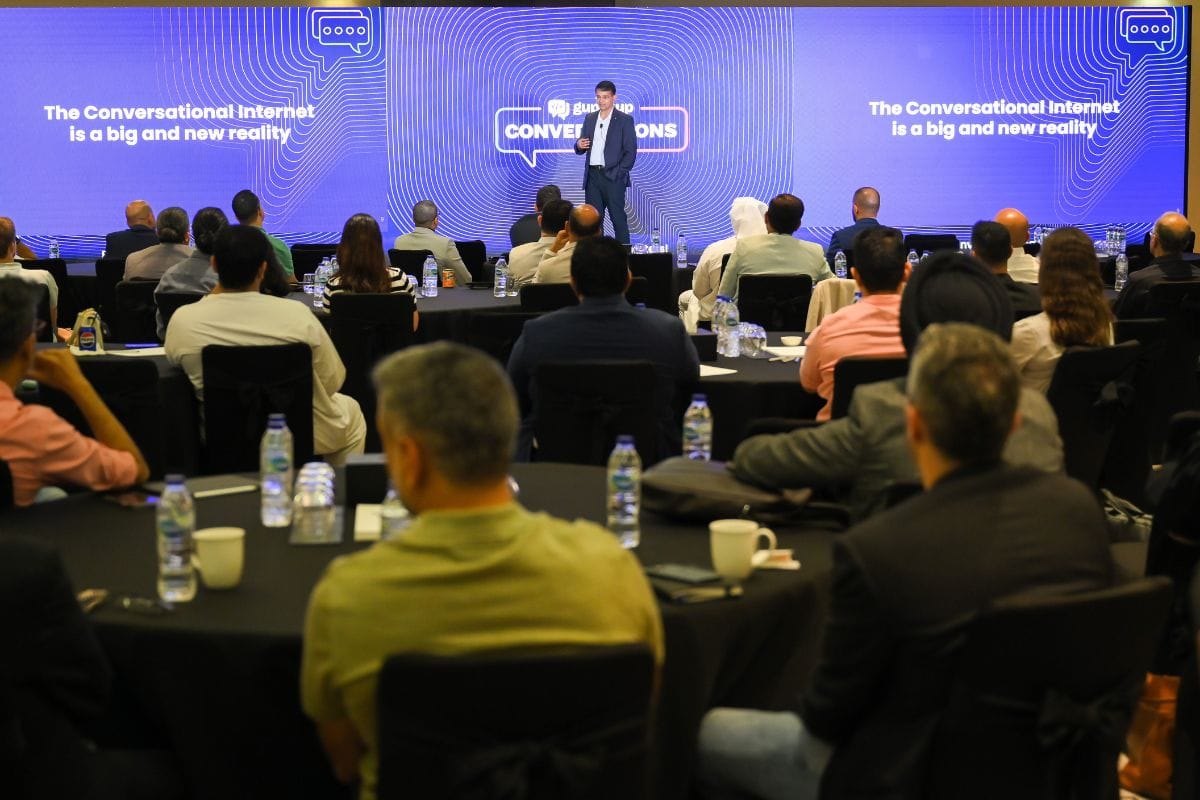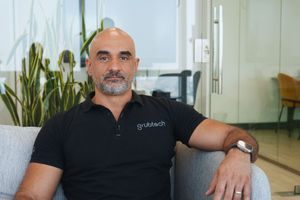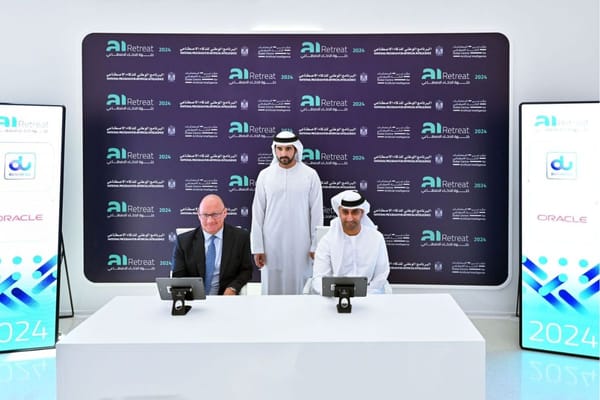In an era where digital communication is rapidly evolving, Beerud Sheth, Co-Founder and CEO of Gupshup stands at the forefront of innovation. With a remarkable journey that began with the founding of Elance, later merging with oDesk to form the now-public Upwork, Beerud has consistently demonstrated his visionary prowess. Today, he leads Gupshup, a pioneering platform that has revolutionized conversational AI, transforming how businesses engage with their customers.
In this exclusive interview, Beerud shares his insights on the inspiration behind Gupshup, the strategic moves that have fueled its growth, and his vision for the future of conversational AI, offering a unique glimpse into the mind of a tech entrepreneur shaping the digital landscape.
➤ What inspired you to start Gupshup, initially an SMS platform, after founding Elance, which later became Upwork?
Every startup is born in a specific context; for us, it was the right time and place during the mobile revolution. Mobile phones were emerging, connecting several billion people for the first time. This created a massive opportunity: how do we deliver digital services to the next 4 or 5 billion people globally? At that time, feature phones were prevalent, and the only way to reach those users was through SMS or mobile messaging. Despite its simplicity, SMS is a powerful and ubiquitous protocol, reaching many more people worldwide. We saw an opportunity to build interesting services using this channel. The vision of leveraging mobile messaging to deliver rich digital services to billions of people continues to drive, inspire, and motivate us.
➤ Could you elaborate on the strategic goals behind your acquisitions of companies like DOTGO, Knowlarity, and Active.ai, beyond accelerating growth and expanding your customer base?
Beyond gaining access to more customers, our primary goal was to enhance our product stack to enable business enterprises to engage in chat-based marketing, commerce, and support. We identified the necessary tools and capabilities and recognized our strengths in messaging. About three years ago, after a significant funding round, we invested in AI companies, an RCS company, a voice company, and a company focused on agent assist tools. These acquisitions filled gaps in our product vision, brought in new customers, and expanded our reach. Moving forward, acquisitions will continue to be a key part of our growth strategy to fill product gaps, expand geographically, and increase our customer base and revenues.
➤ How have your academic credentials from MIT and IIT influenced your entrepreneurial career? Do you believe academic achievement is crucial for entrepreneurial success? What advice would you give to aspiring entrepreneurs without a similar academic background?
An exceptional academic track record can help, but it's not essential for success. Analytical thinking and problem-solving skills gained from academics are valuable, but entrepreneurship also requires grit, perseverance, interpersonal skills, emotional maturity, resilience, and risk-taking. Sometimes, a strong academic background can be a disadvantage by making traditional job security more tempting than taking entrepreneurial risks. Success in entrepreneurship depends on matching your strengths with the right market and product, known as product-founder fit or market-founder fit. Founders should focus on leveraging their strengths and managing their weaknesses to succeed, as many opportunities do not require a strong academic background.
➤ We understand you are closely associated with Meta, one of their top partners worldwide. What are your goals regarding WhatsApp and Meta-related product offerings?
We are proud to be one of WhatsApp's top partners globally. WhatsApp is a powerful platform with nearly 2 billion users, predominantly in emerging markets. Meta has done an exceptional job enhancing business messaging features, allowing companies like Gupshup to build on these capabilities. I like to think of WhatsApp as prime real estate and Gupshup as the mall where enterprises can set up their stores and conduct business. This partnership is highly collaborative, involving constant communication and brainstorming on product roadmaps, go-to-market strategies, and customer referrals. We are optimistic that Meta will continue to develop WhatsApp to support the partner ecosystem, enabling us to collectively realize the vision of a conversational internet.
➤ Do you intend to invest in and focus on more of your products without relying on external products from Meta or others in this messaging space?
Absolutely! Every company must add value in its unique way, independently of others. Meta provides an incredible messaging platform with extensive capabilities, but the enterprises we work with require much more than that. They need tools to define customer journeys and workflows, leverage AI, store user profiles and personalization data, run effective campaigns, manage catalogs, integrate payments, perform analytics, assist agents, and more. These are capabilities beyond the basic messaging platform.
The underlying platform serves as a delivery pipe, sending messages from businesses to consumers. However, determining what message to send, to whom, when, and how to respond to user queries requires an additional layer of capability – that's where messaging intelligence comes in. This is the software layer that Gupshup has developed. It complements the messaging platform, providing the necessary tools to deliver the right messages to the right people at the right times.
Gupshup's unique value lies in this messaging intelligence. We've always been innovation-led, continuously investing in research and development. Our team of engineers constantly seeks newer, better ways to simplify, streamline, and scale this process for enterprises. This space is evolving rapidly, and we actively listen to enterprise requirements, building more and more products to meet their needs.

➤ What is that one piece of advice you’d want to share with tech startups in UAE, apart from suggesting they use one of your product offerings?
Founders and tech startups must leverage their strengths while addressing their weaknesses. In the Middle East, strong government support for digitization and AI investments provides a significant advantage. The region's increasing connectivity and global idea exchange present enormous growth opportunities despite a nascent tech ecosystem. Founders should focus on the unique strengths and regional advantages of the Middle East, avoiding direct competition with larger global companies. By targeting inherently regional products and services, startups can capitalize on the region's growth potential without facing intense competition from established global players.
➤ With Elance's exit, you would have made enough money to retire. What drives you to do this hard work, flying across the world, meeting clients, guiding your team, etc?
It's not hard if you're having fun. I enjoy innovating, creating, and building products that customers genuinely want, which involves regular customer interaction and constant learning about new developments, opportunities, and threats. This ongoing learning process allows us to adjust and improve our products. The process itself is rewarding, regardless of financial need. Working with bright, motivated people to solve challenging problems is a rare and valuable opportunity. Knowing our products are used by millions is incredibly fulfilling. Although there are elements of grunt work, fatigue, and stress, focusing on the bigger picture and larger objectives makes these small inconveniences insignificant. My passion for innovation and creating impactful products keeps me driven and motivated.
➤ What is your honest opinion on the adoption in the UAE and GCC of beneficial tech products that actually solve business problems? Is the region on par with the US, Europe, and Asia, or is it trying to catch up?
The UAE and GCC are highly committed to investing in the latest technology and building a robust local tech ecosystem, supported by surplus capital and ambitious initiatives like Saudi Arabia's Vision 2030 and Dubai's appointment of the world's first AI minister. These efforts demonstrate a strong commitment to modernization and leveraging new technology. The region is quickly catching up and even leading in some areas due to rapid information exchange and increased connectivity. Entrepreneurs should focus on creating great products, as well-informed consumers will choose the best solutions. The rapid tech adoption in the GCC is promising and will drive significant growth and innovation.
➤ More often, new-age tech startup founders have told us offline that businesses in the region are still obsessed with old-school enterprise tech, spending a lot on outdated technology, and are slow to adopt “cool tech products.” What is your take on that?
You can't sell technology just because it's "cool." Technology must solve practical problems, improve efficiency, and deliver tangible value to customers. This principle applies globally, not just in this region. Decision-makers evaluate technology based on its ability to address their specific problems, regardless of whether it's old or new.
In my entrepreneurial experience, many cool technologies have failed because they didn't solve real issues. The responsibility lies with entrepreneurs to clearly articulate how their technology addresses real problems, rather than relying on its novelty or cool factor.
➤ How do you measure the success and impact of Gupshup's solutions for your clients?
We measure the return on investment (ROI) of our solutions through numerous case studies, reflecting success in higher conversion rates, increased sales, improved customer satisfaction, enhanced lead conversion, and faster resolution of support queries. Gupshup's versatile tools support various business functions, driving overall business growth by helping businesses acquire and convert customers more effectively, engage them better, meet their needs, sell more products, collect payments faster, and resolve queries efficiently. On a broader scale, Gupshup is transforming emerging markets in the Middle East, India, Latin America, and Southeast Asia through conversational internet, driving digitization and modernization. We measure our impact both at the enterprise level and in the aggregate, and we are excited about the value Gupshup provides.
➤ Gupshup works with major brands like ADCB, Lulu Exchange, and Emaar. Can you share some success stories or case studies from these collaborations?
Typically, most enterprises start using Gupshup's solutions at the front end of the customer lifecycle, focusing on acquiring new customers or engaging existing ones. For instance, they might send promotional messages to reactivate users by informing them of a new sale, product, or inventory. However, it's more than just outbound campaigns. These brands create interactive journeys for their customers. Instead of a simple sale announcement, they might present personalized options such as, "Here are three items we've selected for you based on your prior purchases. Pick one as part of the sale." This interactive approach gives customers choices and drives engagement.
We are in an era of conversational marketing and advertising, which are far more intelligent, personalized, engaging, and interactive. Customers use Gupshup's platform to enable transactions, facilitate purchases, run loyalty programs, and handle customer support queries. This approach transforms how brands communicate with their customers, making interactions more meaningful and effective.
➤ What are some emerging trends in the conversational platform industry that businesses should be aware of?
The rise of AI, especially Large Language Models (LLMs), is the most significant trend in the conversational platform industry, enabling natural, human-like interactions in any language across text or voice. This marks a substantial advancement from traditional, structured conversational experiences. However, utilizing LLMs for business conversations requires ensuring accuracy, context, relevance, and adherence to security standards. Gupshup excels in providing tools that help enterprises leverage LLMs safely and effectively, driving growth. Adopting these technologies can greatly enhance customer interactions, making them more personalized, empathetic, and efficient, which is crucial for competitiveness.
➤ What are Gupshup's plans for the future, both globally and specifically in the GCC region?
At Gupshup, we prioritize deepening our engagement in all markets by adopting a multilocal approach. This means understanding each region's unique requirements, constraints, and preferences. This goes beyond just language and currency to include how business-to-customer interactions occur. We closely identify specific needs and continuously update our products to meet them. Our commitment to innovation and responsiveness ensures quick support and seamless solutions for our customers. This approach helps us win customers across all regions, fostering a continuous cycle of improvement and growth. Specifically in the GCC, we see significant traction and will continue to invest heavily to meet our customers' evolving needs.
➤ How do you see the role of conversational AI evolving in the next 5-10 years?
Conversational AI is revolutionizing human-computer interaction, moving from desktop and mobile interfaces to natural, human-like conversations. Every business will soon have a conversational AI agent, enabling personalized, engaging one-on-one interactions with customers. These AI agents, available 24/7, will simplify consumers' lives by handling detailed tasks in any language and responding instantly. Over the next five years, conversational AI will become more sophisticated, offering greater personalization and empathy. Businesses that embrace this technology will see significant rewards, while those that don't risk being left behind. This trend is set to transform all business-to-consumer interactions.
➤ The conversational AI market is becoming increasingly crowded. How does Gupshup differentiate itself from competitors like Twilio, Zendesk, or Intercom? What competitive challenges has Gupshup faced, and how have you addressed them? How do Gupshup's chatbots stand out in modern business communication?
Gupshup distinguishes itself in the crowded conversational AI market by focusing on a mobile-first, messaging-centric ecosystem, especially in emerging markets where platforms like WhatsApp dominate. This strategic focus, coupled with significant investments in research and development, allows Gupshup to be an innovation leader, often introducing new capabilities before they become widely available.
Gupshup attracts top talent and heavily invests in R&D, ensuring a customer-centric approach. This means understanding and integrating customer needs into their comprehensive suite of tools for messaging, AI, and chatbots. Unlike other companies that offer only parts of the solution, Gupshup provides an all-encompassing suite that meets the diverse needs of its clients.
Gupshup's leadership in regions like the GCC, India, Latin America, and the Middle East is driven by its commitment to innovation and customer satisfaction. By focusing on the right product for the right market in the right way, Gupshup remains a leader in the industry.
Watch the interview:
Also Read:













